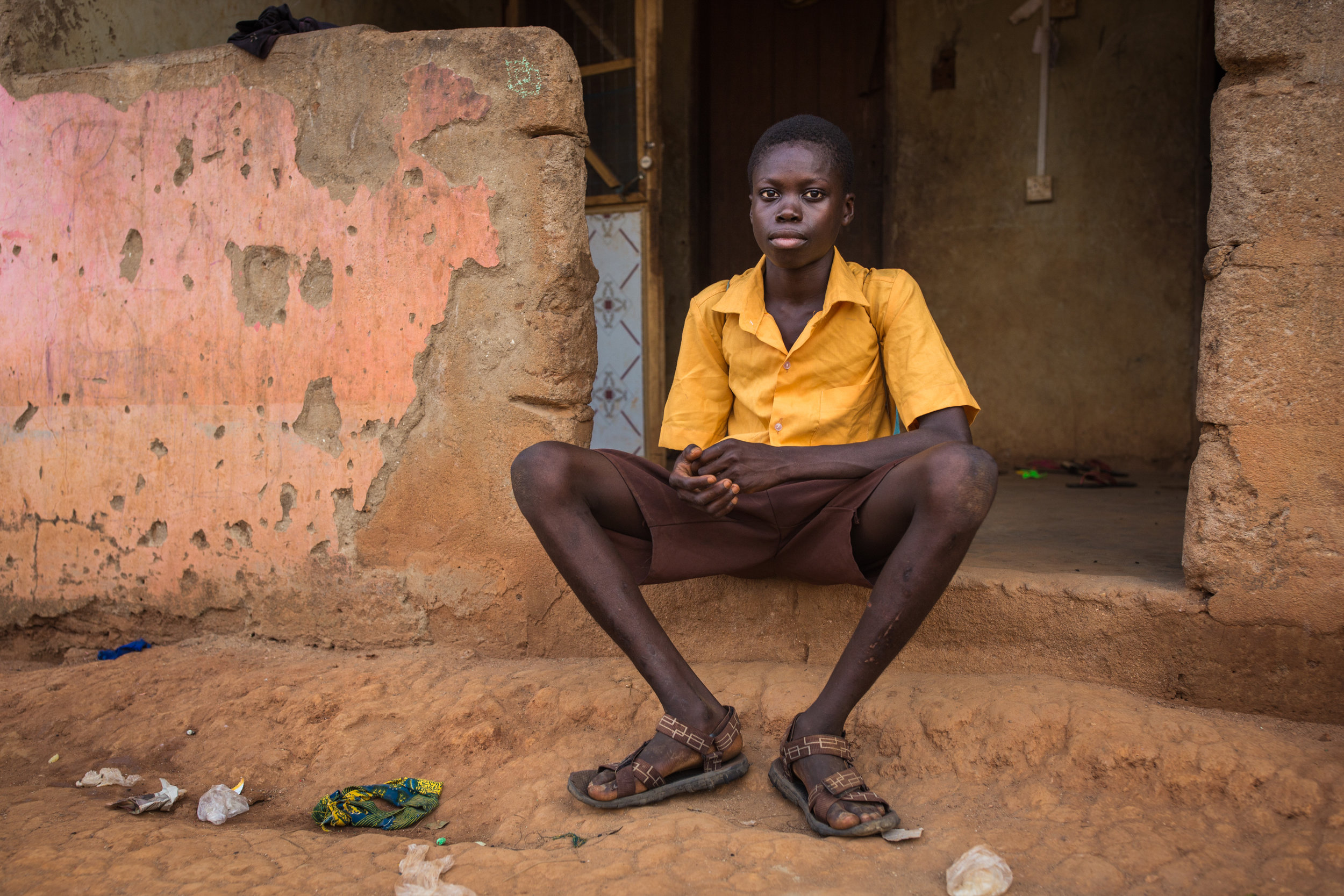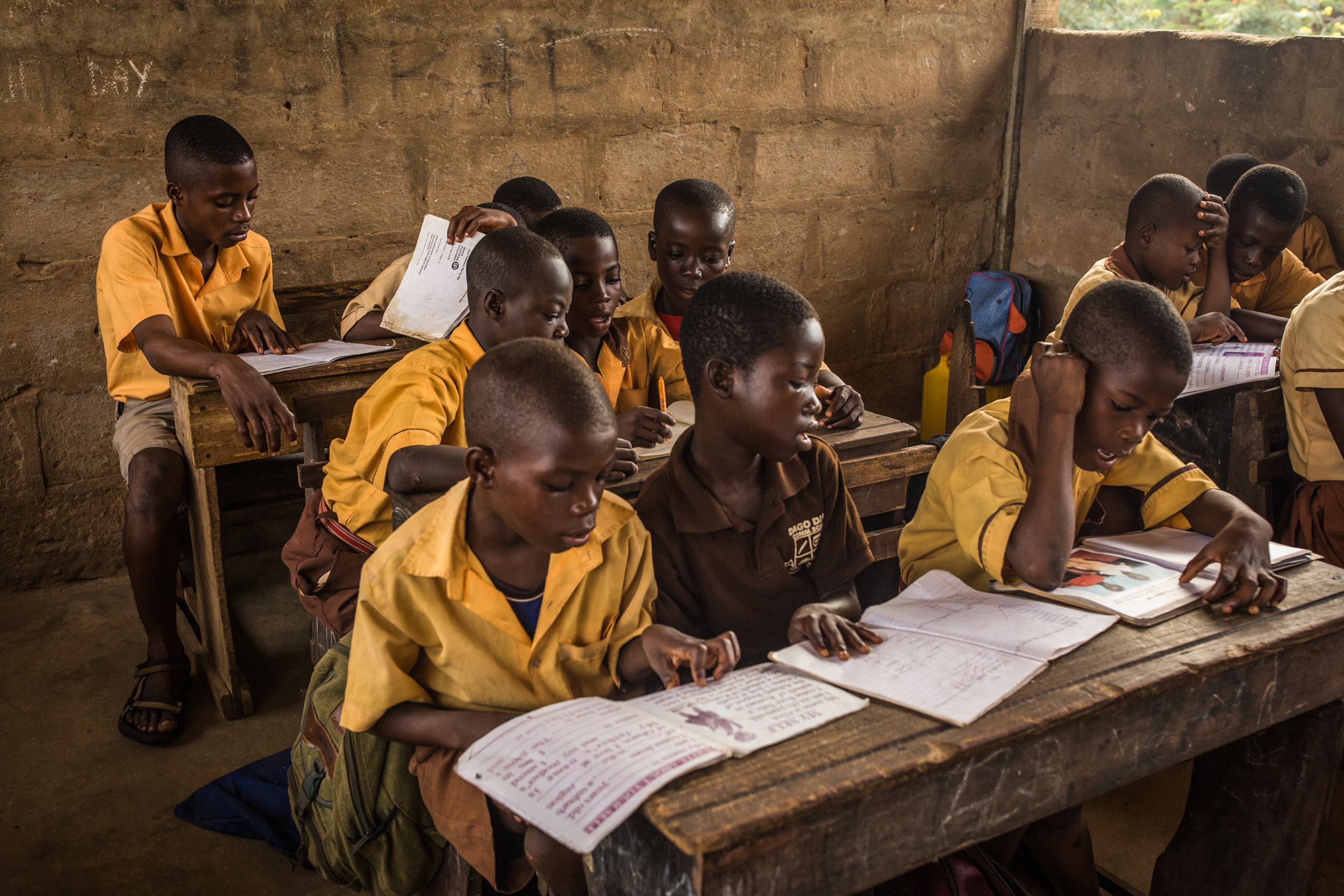Last February, after over a year of planning, I traveled to Ghana to document child slavery in fishing villages. I was fortunate to be working with Free The Slaves, an international non-governmental organization established to campaign against the modern practice of slavery around the world. The full stories of the individuals photographed below can be found on the website of Free The Slaves and more photos can be found here.
Writing By Anna Bengel:
A new special Free the Slaves series profiles children who have survived slavery on Ghana’s Lake Volta. They were forced to work day and night on dangerous, deadly fishing boats. They were abused, held under threat of violence, unable to walk away. Many children enslaved on the lake are never seen again. But these inspiring survivors highlight how our community-based model for freedom really works.
Photographer, Emily Teague, volunteered to help Free the Slaves by traveling to Ghana to photograph child slavery on Lake Volta, and document the remarkable stories of children who have escaped or been rescued thanks to our “Growing Up Free” program. These portraits of freedom, and stories that go with them, are astounding.
Dodzi Kwablavi | Orphaned Child Slavery Survivor Now Protects Her Own Child: Orphaned as a baby, Dodzi was adopted by an impoverished local woman who trafficked her into fishing slavery on Lake Volta. She spent years as a labor and sexual slave. Today she is learning new skills to support her daughter in freedom. Read her full story here.
Francis Alehey | His Father Aided Traffickers – His Mother Finally Saved Him: Francis’ father was a slavery collaborator who took money to enslave vulnerable children. He sold many—even his own son. Trapped on Lake Volta, Francis was beaten and abused. His mother saved him by taking a stand. Read his full story here.
Setsofia Dowokpor | Illness Forced His Mother to Sell Him into Slavery: His bedridden mother sold him to traffickers in a desperate bid for money. Setsofia was trapped in slavery for five years. His sick mother died. But community outreach efforts won him his freedom. Read his full story here.
Emmanuel Arthur | Once Left for Dead, Today Dreams of Future: Emmanuel was robbed of freedom and an education before he could ever enroll in school. He nearly drowned in Lake Volta. But he survived the horrors of slavery—now he dreams of a bright future. Emmanuel was a slave before he could be a student. Read his full story here.
Richard Mensa | Child Slave Deprived of Education Dreams of Being a Teacher: Poverty and ignorance forced Richard’s grandmother to traffic him into slavery. He spent seven years as a child slave on Lake Volta. At her funeral he saw a chance to be free—and was courageous enough to take it. Read his full story here.
Nartey Dickson | Community Education Brings Family Back to Freedom: Disability forced Nartey’s mother to traffic him into slavery. He lost all hope as a child slave in a fishing village on Lake Volta. Community education efforts brought his family back to freedom. His mother is learning sustainable skills—and he is back in school. Read his story here.
These six children—and many more—were freed as part of our Ghana initiative “Growing Up Free,” which focuses on the formation and implementation of a comprehensive, integrated plan for prevention, rescue, prosecution, rehabilitation, reintegration, education, wrap-around social services, the development of market-based livelihoods for vulnerable families, and the formation of communities united in the determination to drive slavery from their midst.
Villagers map the extent of child trafficking in their community, a first step in building a coordinated, community-led effort to build resistence to modern slavery.
Illustrated booklets guide community discussions about the rights of children and the risks of sending them away from home to work.
Ghana anti-trafficking experts say that schooling is one of the most important ways to prevent child trafficking. An educated child has options in life.
Working conditions for trafficked children on Lake Volta are deplorable. The work to rescue children, and ensure that no one else takes their place on the boats, is urgent. New research by Free the Slaves has uncovered 35 percent of households in the villages where we work having a victim of child trafficking or slavery-like conditions.
Our “Growing Up Free” program is made possible by an innovative Child Protection Compact Partnership between the U.S. and Ghana governments, as well as by individual contributions by Free the Slaves supporters.
Thanks to Free the Slaves Ghana Country Program Manager, Bismark Quartey, and Theodore Atsu Ameme of our partner International Needs Ghana for their work in documenting the six remarkable survivor stories in our portraits of freedom series. And our thanks to photographer Emily Teague for her stunning images.




























